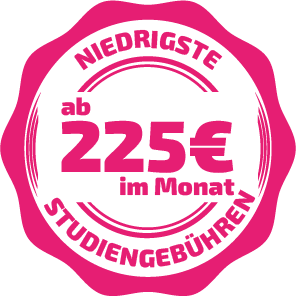- STUDY
- ABOUT US
- BLOG
- NEWS
- Get to know the INU
- Apply to the INU
- INU Information Events
- INU Student Advisory Service
- Information Material
- Newsletter
- FAQ
- Apply to INU
- Change the University or your Field of Study
- Admission Requirements
- Fees & Financing

With the general higher education entrance qualification you may get entrance to any Bachelor’s degree at any German college or university. The general university entrance qualification is obtained by passing the general Abitur. So you prove it with your high school diploma.
The Fachgebundene Hochschulreife, which is also colloquially referred to as the Fachabitur, differs from the Allgemeine Hochschulreife in that it only requires the acquisition of a foreign language. It entitles you to study certain subjects – hence subject-specific. It is important that there is a certain correspondence between the subject area of your subject-related university entrance qualification and the chosen field of study. This match will be reviewed individually by the university. You can prove your subject-related university entrance qualification by means of your school leaving certificate.
→ Merkblatt-zum-Erwerb-der-Fachhochschulreife.pdf (schulministerium.nrw)
As soon as you have completed both the academic and the vocational part of your Fachhochschulreife, you have a university entrance qualification that allows you to study at all Fachhochschulen in Germany. It should be noted that the vocational part can be fulfilled both by a completed vocational training and by a guided internship of at least one year. Further, the directed internship may be substituted for the following activities:
If you have completed the vocational part of your Fachhochschulreife with a guided internship, you need a confirmation from the internship company that the internship qualifies as a “guided internship”. If, on the other hand, you have completed the vocational part through vocational training, you must provide proof of completion of the respective state-recognized vocational training.
Under certain conditions, you can also obtain a university entrance qualification and study without a (technical) high school diploma. The following options are available here:
Advanced vocational training is understood to mean a successfully completed master craftsman’s examination, the completion of a technical college or a comparable qualification acquired following vocational training and a corresponding professional activity. This gives you exam-free direct access to all degree programs at all universities.
If you have completed at least two years of vocational training regulated by federal or state law and have worked for at least three years in your training occupation or in an occupation that is professionally equivalent to your training occupation, you are entitled to take up studies in a course of study that is professionally equivalent to your vocational qualification and your professional activity. Proof of this is provided by your training certificate, a curriculum vitae and relevant work references.
If you have completed at least two years of vocational training regulated by federal or state law and have subsequently been employed for at least three years, you can also obtain the university entrance qualification for a degree program by taking an entrance examination or a trial course. In this case, the degree program for which the entrance examination is taken or in which the trial course of study is taken is not limited to a course of study corresponding to the professional degree or professional activity in terms of subject matter.
Further information on university access for vocationally qualified students can be found here.
Even if you have acquired your university entrance qualification abroad, you can still study in Germany. The only important thing is the recognition of your foreign university entrance qualification. Depending on the nationality, the following must be observed:
There are many forms of college admissions. Depending on which university entrance qualification has been acquired, different documents must be submitted. Please find out about point “1. HZB – What is it anyway”, which proofs are obligatory for you.
To study at a college or university, a health insurance certificate is required. This is issued by the respective health insurance company in the form of a membership certificate. With many health insurance companies, applying for such a membership certificate is already completely digitalized and can be done online.
If you have private health insurance, you will need an exemption certificate. You can get this from any public health insurance company.
A regular CV is required for foreign applicants and for applicants who have a professional qualification. This does not have to meet any special requirements.
If you have already studied at another college or university before starting your studies at INU, a certificate of de-registration is required to prevent double enrollment.
Necessary documents can be uploaded via the INU app as well as via the INU portal via web browser.
There are no application deadlines at INU. You can submit your application until the start date of each semester. However, it is important here that in the case of a late application, all necessary documents should be available.
At INU you always have your studies in your pocket: your study content is made available to you via our app and you can access and work on it whenever it’s convenient for you. At the same time, you can also experience selected courses on site at our campus in Cologne if you would like to talk to fellow students and lecturers in person.
It is important to us not only to impart specialist knowledge, but also to teach interdisciplinary skills that will enable you to work independently later in your career. Accordingly, we want to promote the independence and methodological competence of our students through the use of various teaching and learning formats.
Our teaching and learning materials are didactically prepared and tailored to the respective learning objectives. We provide you with a clear learning unit mix of classic lectures, digital study literature, exercises, self-tests, discussion and practice sessions, and many other teaching and learning materials that you can work on when it’s convenient for you. You can also attend selected lectures or courses on site at our campus in Cologne – but this is not a must, the classroom lectures are streamed live and also made available as a recording afterwards.
With us you study together with your fellow students in a cohort. That means: You start your studies at the same time on 01.04. or 01.10. and take your exams at the end of a semester at the same time. We also offer you the opportunity to retake exams you have not passed or to make up exams you have not taken in the middle of the following semester.
We promote your mobility abroad, because with INU you always have your studies conveniently with you on your smartphone, tablet or laptop. We will support and advise you in planning your stay abroad and in the future we will also offer you various INU offers abroad such as excursions, language trips or integrated semesters abroad. The corresponding offers are currently under construction.
A semester abroad is not only fun, but also promotes your personal and professional development. Accordingly, we support your travel ambitions and advise you individually on your plans. You can simply continue your INU studies from abroad or complete an independently organized semester abroad at a university abroad as a freemover. In addition, INU is already in the process of establishing cooperation with partner universities abroad in order to be able to offer you integrated semesters abroad at attractive locations in the future.
As a university of applied sciences, practice-oriented education is important to us. The practical relevance is not only established in the courses by our professors and lecturers, who all have relevant practical experience, but it is also curricularly anchored in the degree programs in the form of practical projects or mandatory internships. In addition, we are already working intensively on building up a cross-disciplinary and cross-sector network of national and international cooperation partners from business, research, associations, institutional bodies and universities in order to be able to offer our students a selection of attractive organizations that would like to come into contact with future INU graduates at an early stage. Through guest lectures, career days, practical projects, etc., the companies and our students can get to know each other and, if necessary, already create a basis for final theses, student traineeships or career entry.
ECTS stands for “European Credit Transfer System“. The new point system was introduced in the European Higher Education Area to facilitate the comparability and recognition of academic achievements.
The ECTS points are, in a way, the “currency” of your studies. They are awarded in addition to the grades and indicate the total time load (lectures, processing of the learning material, exam preparation, exam time) of a module or the complete degree program. At INU, one ECTS point is equivalent to 25 time hours.
The ECTS points also indicate the significance of the grade of an individual module for the overall grade of your bachelor’s degree: In the bachelor’s degree programs at INU, you acquire a total of 180 ECTS points. For example, if you have achieved a grade of 1.3 in a module for which 5 ECTS points are awarded, this will account for 5/180ths of your overall grade at the end of your studies.
The ECTS points per module are listed in the module manual of the respective study program.
You don’t need any special technical equipment to study at INU. All study content can be accessed and used via smartphone or laptop. All you need is a suitable device (smartphone, tablet, laptop, PC, etc.) and a stable Internet connection.
The difference between full- and part-time is both in the duration of study and in the distribution of modules. However, the study content remains the same, as does the respective degree. A full-time program provides for a standard period of study of six semesters; a part-time program provides for eight semesters. You should choose a classic full-time study program if you want to devote all your time to studying. Part-time study, on the other hand, is suitable if you are already working full-time alongside your studies or would like to work more hours while studying. The workload calls for full-time students to complete five to six modules per semester, while part-time students complete only three to four modules per semester.
Yes, INU is state-recognized as a private university by the Ministry of Culture and Science of the State of North Rhine-Westphalia.
All of INU’s degree programs offered are accredited by the Accreditation Council Foundation and approved by the State Central Office for Distance Learning (ZFU). Thus, the quality of our study content is ensured by the examination of numerous independent experts. In the course of accreditation, said study contents are regularly reexamined.
INU’s degree programs are accredited, approved and state recognized. Accordingly, you will earn a high-quality degree that is equivalent to a degree from a state university. Depending on the orientation of the program, you will graduate with a Bachelor of Science (B.Sc.) or Bachelor of Arts (B.A.) degree. The bachelor’s degree is an undergraduate degree that qualifies you to enter a profession or entitles you to enter a subsequent master’s degree program.
A minimum contract period of six months applies. For the first time, you can therefore terminate your contract at the end of the first semester with six weeks’ notice. From the second semester on, you can always terminate your contract with a notice period of three months.
After expiration of the standard study period specified in the contract, it ends automatically and no termination is required.
The cost of studying at INU depends on the time model. For full-time studies, €545 is paid per month. The cost of one semester is therefore €3,720, while the entire program costs €19,620.
Part-time studies, on the other hand, are paid only €430 per month. One semester thus costs €2,580, with the entire program costing €20,640. The higher total costs compared to full-time study are due to the longer duration of study.
Unlike fee-based face-to-face courses, the fees for your studies at INU are capped. This means that if you need more than 36 or 48 months to complete your studies, you will not pay any additional monthly tuition fees. In the first 12 months after the end of your standard period of study, you can extend your period of study completely free of charge. After this no-cost extension, students may continue their studies. This extension of study time begins immediately following the free extension. An administrative fee of 250 euros is then due for each semester started.
If you meet the BAföG requirements, you can receive a maximum grant rate of 934 euros, depending on your parents’ income. This funding rate consists of half a grant and half an interest-free loan. Therefore, half of the BAföG must be repaid at the end of the studies (first payment five years after the last BAföG payment). The maximum amount of debt is 10,010 euros.
You can apply for BAföG here.
For further information on BAföG, you can contact the Kölner Studierendenwerk.
Student loans assist students in meeting the cost of living during a course of study or in financing the studies themselves. Various banks and savings banks offer different student loans, depending on the region. The Kreditanstalt für Wiederaufbau (KfW) distributes nationwide student loans in cooperation with the Bundesverwaltungsamt (BVA). You can find more detailed information regarding the conditions of the KfW student loan at the Federal Ministry of Economics and Climate Protection. If you would like to apply for a KfW student loan, you should contact the Federal Office of Administration.
Numerous scholarships are awarded by gifted and talented funding agencies, foundation donors and other organizations. Here you will find a short listing of some awarding bodies:
As long as you are under 25 years old, you are entitled to the so-called child benefit. Here it is not important whether it is a first or second degree. The only important thing is that, in addition to the age limit, you do not exceed a maximum of 20 hours of work per week.
If you are older than 25 years, you can also claim child benefit if you have done military or civilian service. You can get more detailed information from the Family Fund of the Federal Employment Agency.

Under the auspices of
INU – Innovative University AG
State-recognized and accredited





Interessenten- und
Bewerbermanagement